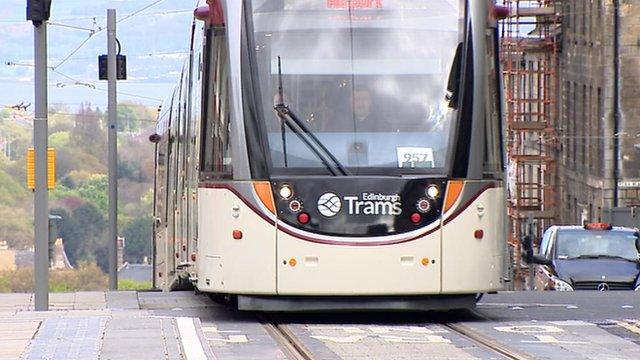The melodrama of Edinburgh's trams
- Published
BBC Scotland's David Miller looks at the financial and political melodrama of Edinburgh's new tram service
After years of controversy, Scotland's capital city finally has a fully functioning tram line, with the first paying passengers boarding on Saturday morning. The long-running story has been a financial and political melodrama.
Month after month, year after year, the digging in Edinburgh's handsome city centre streets went on and on, as disputes raged and costs soared.
Deadlines came and deadlines went.
By 2011, the money had largely run out. The tram project was in crisis.
Back then the tram project was stopped in its tracks. Many feared the launch day would never come.
What exactly went wrong and, perhaps more importantly, how did bosses manage to avert a potentially humiliating failure?
It fell to Edinburgh City Council's new chief executive Sue Bruce to resolve the bitter and expensive legal stalemate with the companies building the tram line.
Days locked in mediation with the contractors proved vital.
Speeded-up footage shows Edinburgh's new tram journey from the city airport to York Place in the city centre
"History has shown that we have been able to make it work," says Ms Bruce.
She says: "We have had zero disputes since mediation and I think it is very much about turning it into a cooperative way of working but nevertheless appreciating that the contractors had a wholly commercial view of it and we had very much a public interest view of things. And bringing those two things to meet in the middle somehow."
Fast forward to 2014 and the trams are finally ready to carry their first paying passengers. The council was forced to borrow its way out of trouble.
Interests payments on the final bill of £776m will take the total cost to over £1bn. But we still don't know when, or even if, the line will reach Leith and the waterfront.
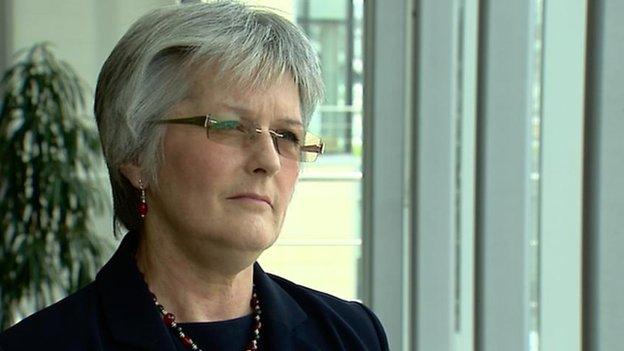
Edinburgh council's Sue Bruce says they had to find a way to cooperate with the contractors
Calls for a public inquiry are growing louder.
Prof Richard Kerley of the Centre for Scottish Public Policy is writing a book on the tram fiasco.
He says: "We have spent an awful lot of money on this. It is worth spending a relatively small amount of money to find out what happened and how it could have been improved because we are going to do similar things in other cities, either in Scotland or elsewhere in the United Kingdom, and we should learn from everybody's experience."
In Leith, support for the completion of the line appears to be strong but some have had enough and dread even the prospect of work on the line restarting.
Local businessman Alan Rudland says: "Businesses will make hard decisions. They will spend money, if it is wrong they will stop. They will stop digging when they get to the bottom of the pit.
"It seems to me however that the council are saying 'we are just going to keep on digging'.
"This is a project that is never going to make money to recoup its build costs and it is simply not going to make money to replace itself. So it is nothing but a money pit."
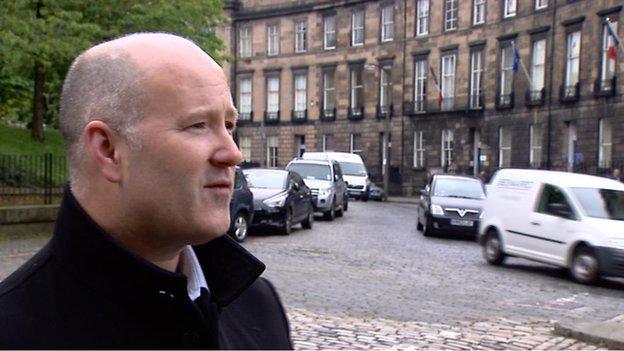
Dr Ashley Lloyd says congestion has increased in the New Town
And there is criticism too from city centre residents who say their health is being threatened by traffic forced away from the tram route.
Dr Ashley Lloyd, a spokesman for residents in the New Town, says: "What we have here, in the cobbled streets around the residential parts of Edinburgh, we have HGVs coming through at all times of the day and night.
"We see at peak times here that traffic is so heavily congested that it is actually stationary for large parts of the time."
At the tram depot of the city's western outskirts, final preparations are under way for Saturday's launch.
Excitement in the city is building according to tram boss Tom Norris.
He says: "There seems to be a real keenness to be part of day one. That goes across our staff but also the people who are keen to see what trams are all about in Edinburgh.
"We want people to come and enjoy the experience. We expect it to be busy but we will be working very hard to make sure things go as smoothly as possible."
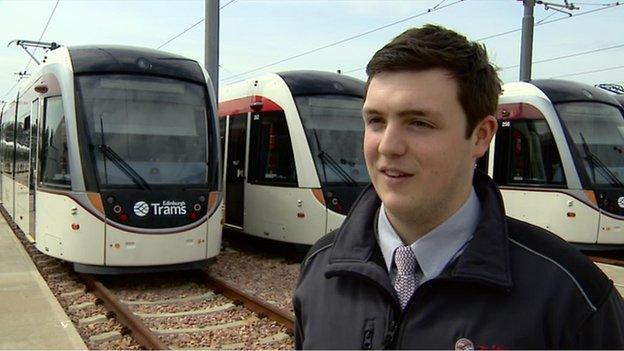
The first tram will be operated by Craig Scotland
And for one young tram driver it will be a day to remember.
Craig Scotland will be at the controls of the very first service, starting at 05:00 from the Gyle shopping centre.
He says: "I'm really excited but it comes with nerves as well.
"When I left school I never thought I'd be doing something like this, making my own mark in history in Edinburgh."
And so it is over to you, as the citizens of Edinburgh and the taxpayers of Scotland finally have the chance to get onboard and judge for themselves if the disruption and the cost really have been worthwhile.
- Published30 May 2014
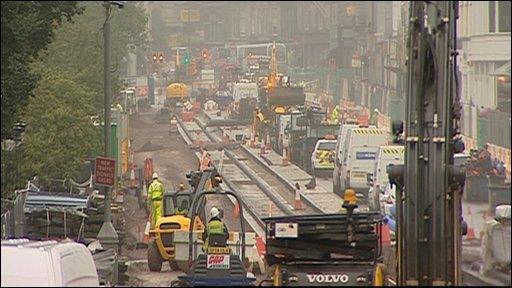
- Published30 May 2014
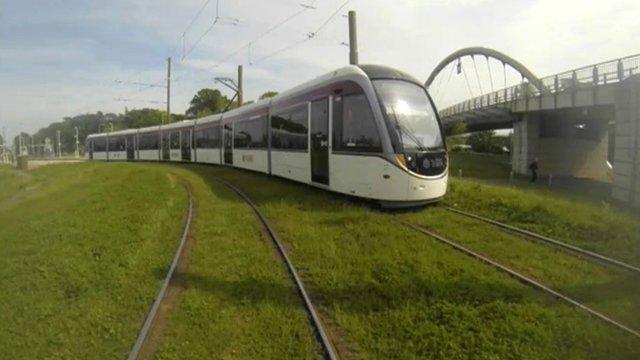
- Published30 May 2014
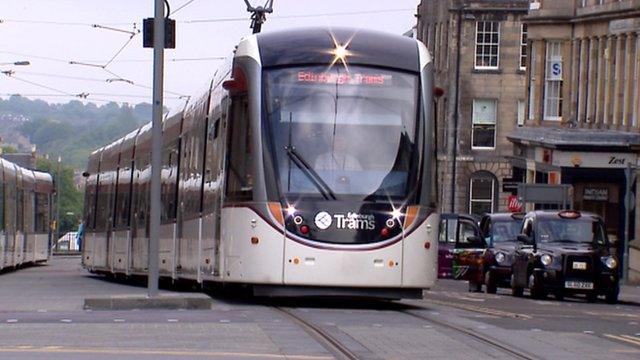
- Published30 May 2014
